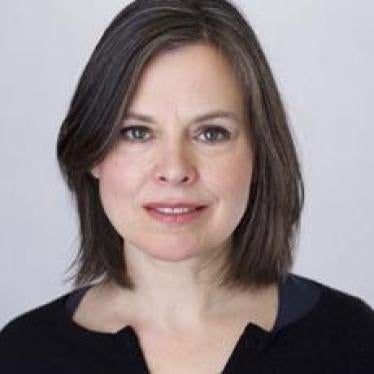Developments in Turkey are often difficult to understand from the outside. But the events of the past few days must seem particularly opaque. News of investigations into corruption and bribery broke on December 17 with a wave of arrests including the sons of three government ministers, a governing party mayor, a leading contractor and a bank director.
There are allegations that four cabinet members are involved, the interior minister among them. In all, 91 were arrested and 26 people – among them the sons of two ministers and the bank director – later remanded to prison pending trial. The evidence: millions of dollars hidden in shoeboxes, photos and wiretaps. These are serious charges and deserve a full and impartial investigation.
The government’s response was first to remove the police officers working on the investigations in Istanbul, then others in cities such as Ankara and Izmir; and on December 19 the Istanbul police chief himself. Around 100 police officers were removed from their jobs. The speed and scale of these actions fuels serious concerns that the government is seeking to cover up the scandal – and suppress the investigations. The immediate appointment of two additional prosecutors to the investigation has also raised questions that are unanswerable at this point about what this might mean for the investigation process.
Turkey’s Deputy Prime Minister Bülent Arınç rightly acknowledged that allegations of corruption and bribery were a matter for the prosecutor and courts. But the country’s Prime Minister Recep Tayyip Erdogan has focused entirely on the corruption investigation itself, terming it “a very dirty operation”. He has tried to link it to the protests last spring over his efforts to take a downtown park for a pet development project, termed it the work of an illegal gang – “a state within a state” – and darkly referred to international involvement. A full week later on December 25, three ministers implicated in the scandal resigned issuing statements obedient to the party line in deploring “a dirty conspiracy against our government, our party and our country”. Their resignations came with a full cabinet reshuffle and the appointment of many new ministers later on the same day.
Despite the late resignations, the prime minister and his circle are focusing on going after whoever opened the investigation but have had little to say on the serious allegations of corruption and bribery reaching to government level. The political climate in Turkey is poisonous. Viewed from one perspective this week’s developments are part of a vicious power struggle within the ruling Justice and Development Party – with municipal elections approaching in March 2014. On one side is Erdogan’s dominant circle and on the other its long-term political ally now estranged – the Fethullah Gülen movement.
The Gülenists are a Sunni Muslim religious movement best known internationally for opening Turkish schools around the world. In Turkey they are perceived as highly influential in the police force and the judiciary. They also own an influential newspaper and television channels. Gulen lives in Pennsylvania.
The power struggle has been a long-term reality. In a move widely interpreted as an attempt to cut off one of the Gülen movement’s main sources of revenue and influence, the ruling party recently made a move to close down the huge network of private prep schools in Turkey that exist alongside the state education system. The Gülen movement runs a significant proportion of these private schools.
Investigations into government corruption in Turkey should be a good thing if the country wants to pursue democratisation efforts and encourage a culture in which public officials can be held accountable. Such an investigation should be a vital step in cleaning up a state that has a long history of criminal activity. It is a chance to make clear that Turkey is a country where nobody, however powerful, is above the law.
The government’s immediate move to purge elements of the police while ministers facing serious allegations initially remained in office raises fundamental questions, though, about whether the rule of law does apply to the powerful in Turkey. So far the signs are that the government has a self-serving approach when it comes to holding public officials accountable: no criminal sanctions against the police for excessive use of force and seriously injuring non-violent demonstrators during the protests back in the spring but immediate steps to demote police for investigating government-linked corruption.
There are concerns that the corruption has been exposed only because key elements of the police and judiciary are taking sides in a political power struggle. But the politics should not obscure the fundamental obligation for the government to support a thorough and independent criminal investigation into all serious and credible allegations. The government should be ready to see those implicated face prosecution, whoever they are. Above all it needs to avoid taking steps that weaken or undermine the rule of law.
Emma Sinclair-Webb is senior researcher for Turkey at Human Rights Watch.









